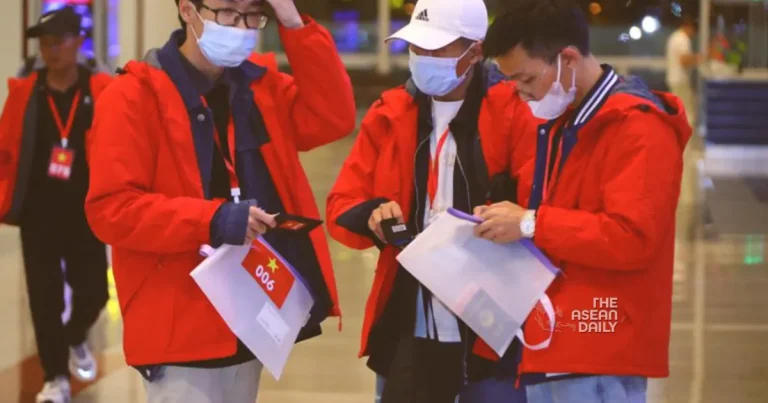7-12-2023 (HANOI) Vietnam has successfully repatriated over 300 of its citizens who were stranded in conflict zones in Myanmar, particularly in the northern Shan State. Many of these individuals were victims of trafficking or deception, lured into working in online gambling establishments.
The crisis unfolded amid intense fighting in Myanmar’s northern Shan State, sparked by an offensive launched by an alliance of ethnic minority groups against the military in late October. The ongoing conflict has resulted in the deaths of more than 250 civilians, including children, according to reports from the United Nations.
The Vietnamese government, through an official website, announced that 338 people had been repatriated, primarily consisting of young individuals, including teenagers and infants. This group represents the initial phase of repatriation for more than 800 Vietnamese nationals stranded in Myanmar.
These individuals were reportedly employed in online gambling establishments in the northern states of Myanmar. However, they were abandoned by their employers and trapped in the conflict zone due to the clashes between Myanmar military forces and ethnic minority groups.
Expressing her relief upon returning to Vietnam, Dang Thi Duyen, one of the repatriated citizens, stated, “I am very happy to be back home in Vietnam,” during an interview with Vietnam Television upon arrival at Hanoi’s main airport on Tuesday.
Vietnam’s foreign ministry has issued warnings to its citizens, urging them to avoid unnecessary travel to Shan State and Karen State in Myanmar. Additionally, citizens are cautioned about job scams that promise high-paying work in foreign countries.
The United Nations human rights office estimates that at least 120,000 people are being held in compounds in Myanmar, where they are coerced into scamming their fellow citizens online. Blue Dragon, a charity dedicated to rescuing victims of human trafficking in Vietnam, revealed that scamming gangs set financial quotas for trafficked workers. Failure to meet these targets can result in physical punishment or even organ removal.
Similar scam compounds are believed to exist in Cambodia, holding around 100,000 people.




